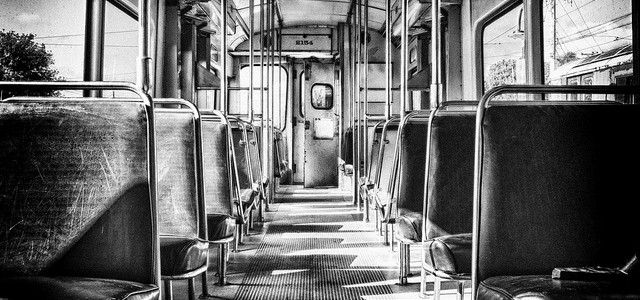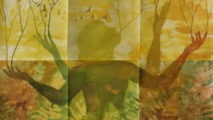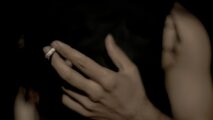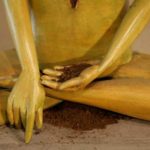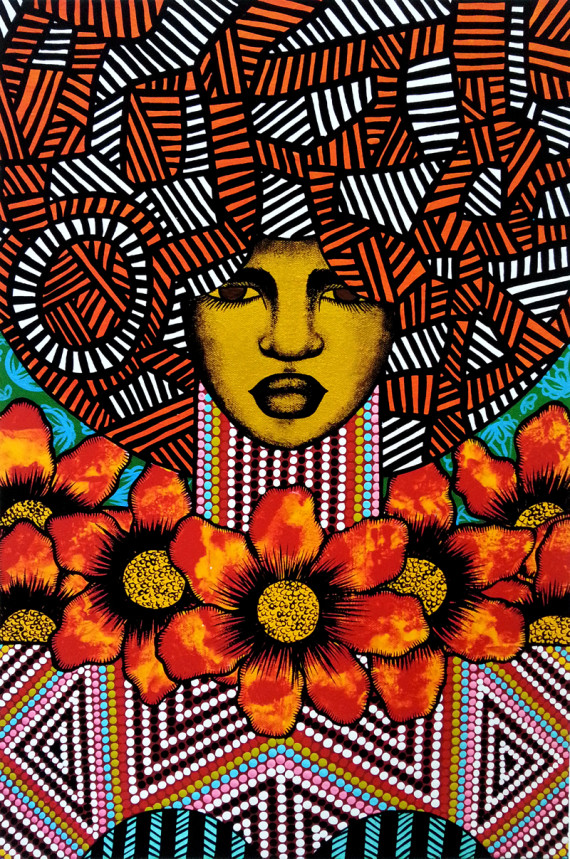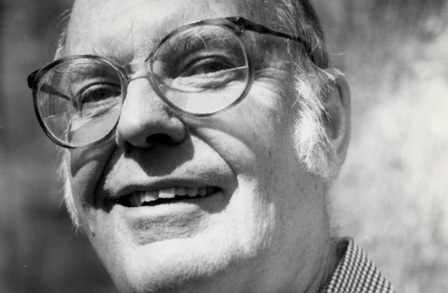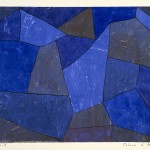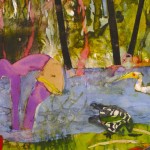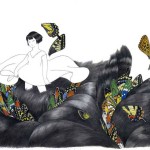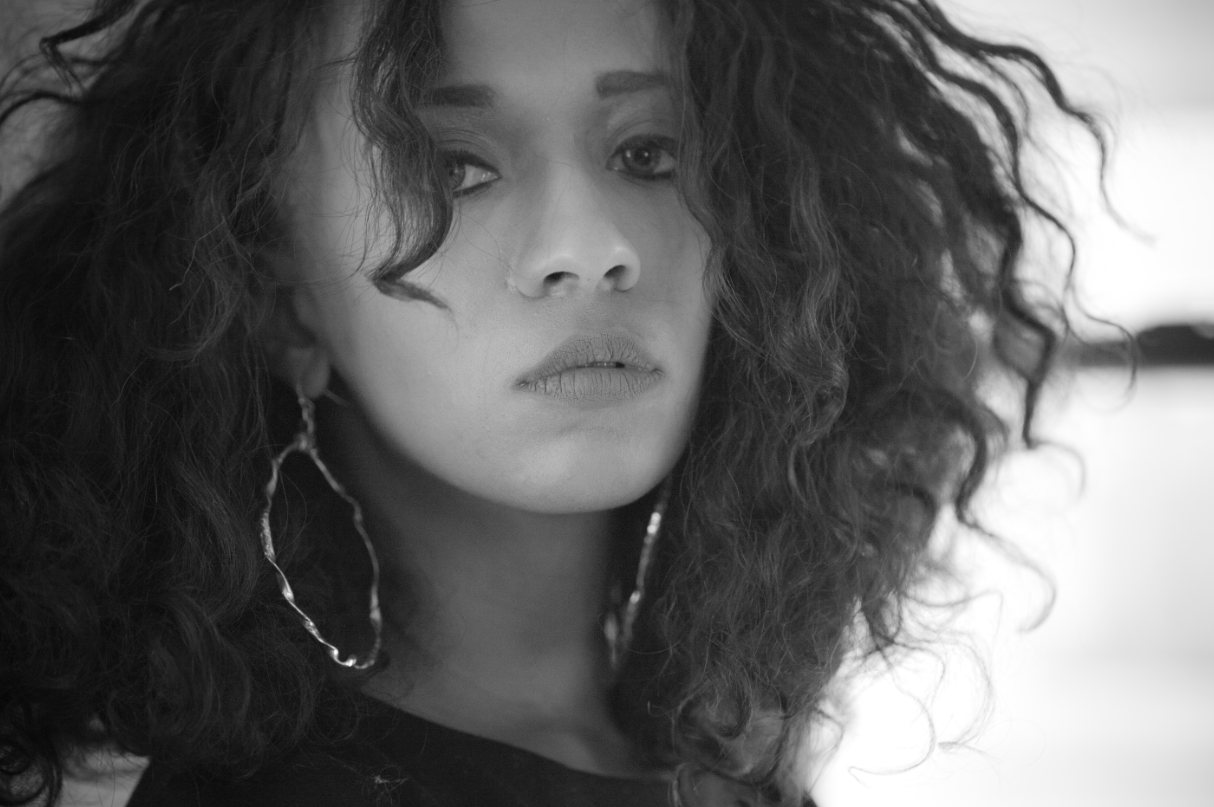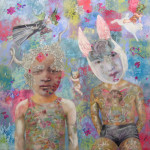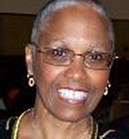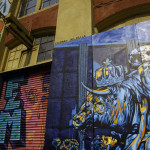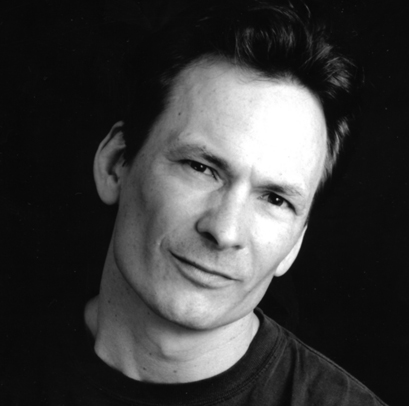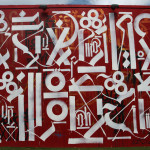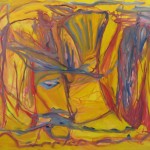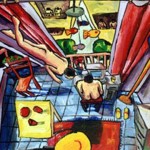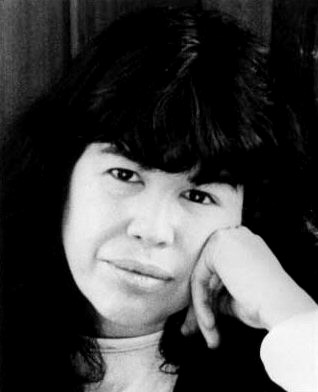for M.T.
He is reading his own obituary. Sunlight arcs through the bus window, lighting his name in the heading, the birth and death dates italicized beneath. The paper jostles in his hands as she eyes the second date from the seat beside him. The first letter of the month is J; the date is the 17th. January, she thinks, her stomach knotting. It’s already autumn; out the window, oak leaves are turning vibrant hues of gold. In the seat beside her, the man’s slacks are too loose on his legs; his elbows protrude from his shirtsleeves. He won’t last until June or July.
He leans back in his seat, rattles the paper, the way he always used to do on Sundays at the kitchen table, legs crossed, drinking coffee, watching birds at the feeders outside. “Well,” he says, meeting her eyes. “We don’t have long.”
“No.” She looks down at her hands. Her fingers are wrapped around the clasp of a purse she hasn’t used in years. “We don’t.”
The bus bumps along, vibrating the floor beneath their feet, their seats. Words swim on the newsprint: prolonged illness, donations, flowers, services, hospice. Following her gaze, he frowns, then folds the paper up. The bus is almost full; there are people in every seat: old and young, brown and beige, hair of every color and style. She’s glad to have found a seat beside him, though come to think of it she doesn’t remember boarding the bus. In the front row, a bald man in a suit and tie pulls the bell cord that stretches along the windows, then helps a white-haired woman in a long wool skirt into the aisle.
Brakes screech as the bus begins to slow. The man and woman gather their packages: two leather suitcases with old-fashioned handles, a stately black umbrella, a hatbox, a smallish portable kennel inside of which there is no dog. As the bus comes to a halt, they bump down the aisle from hand-rail to hand-rail. The driver pushes open the door; the man helps the woman down the steps.
Out the window, a long, straight street stretches toward its vanishing point. Gray buildings tower into stormclouds, close by, tilting dangerously toward the street, farther away. Thunder rattles the bus windows. She fears for the couple as they set off, arm in arm, into this storm. Where are we, she wonders, looking for landmark, a street sign.
The bus groans back into motion; the door squeaks as the driver slides it shut. She reaches for the hand of the man who sits beside her. Out the window, the old woman’s skirt whips in the wind; the man checks the kennel as if there is something inside. He opens the umbrella, whispers something in her ear. As the bus pulls away, rain slides down the glass, and the window becomes a mirror, a kaleidoscope, refracting the colors inside the bus. Instead of the elderly couple, now, she sees the pale of her own face, the black of her hair, the navy plaid of the fabric seats, the bright red hair of the man whose hand she holds.
They sit like this for many stops, watching the melting colors on the window, feeling the jostle of motion in the seats and floor. When the man finally speaks, she blinks, having forgotten they were on the bus at all. She looks around, with some surprise, to realize they’re the only passengers left. All around them, seats are empty, row after row. She realizes what the man has just said. I’m next. He’s reaching up to pull the cord.
“Wait,” she says, her heart thumping.
The rain on the window has turned to frost.
The cord goes taut; she hears the automatic chime. At the front of the bus, the driver glances at them in the rearview. In the mirror, she can see the hollows beneath his cheeks, the haunted look in his eyes. Beside her, the man places the folded newspaper in his pocket, wincing, his hand going to his chest. When he looks down at his battered suitcase, she leans over to get it for him before he tries.
“Thanks,” he says, as she hands it to him, meeting her eyes, his voice small. “I don’t want to go.”
She nods, her voice catching in her throat. “I know.”
He slides past her into the aisle, reaching for the hand-rail, pulling on his suit jacket, already out of breath. As the bus slows, she rises to give him a hug. She can feel the bones of his arms and back beneath his suit jacket, smell the faint, familiar spice of his cologne. Over his shoulder, out the window, the sky is white. This part of the city is clean, its brownstones well-kept, its paths shoveled of snow. Where are we, she wonders again. What route are we on? When he pulls away, she closes her eyes, blinking back all the memories threatening to swim up. There is only this bus, she tells herself, the slope of his shoulders, the sad scent of his cologne. She falls back into her seat, her stomach spinning with regret as she watches him make his way down the aisle.
The bus has stopped in front of a park she’s never seen before, a stately expanse of trees and snow. Gray branches glitter with icicles. Birdbaths crackle with ice. The man stumbles off the bus onto the sidewalk, gripping his suitcase, looking over his shoulder to wave at her in the window. As the bus shudders into motion, she waves back, her stomach doing pirouettes. There he is, she thinks, as his figure grows smaller and smaller. There he is, there he is, there he is, until he’s gone.
Mary McMyne is a fiction writer, essayist, and poet. Her work has recently appeared in The Los Angeles Review, Painted Bride Quarterly, Pedestal Magazine, and a number of other publications, including the anthology, The Way North. Her project reimagining the Odysseus myth from the perspective of a Vietnam soldier’s wife won the Faulkner Prize for a Novel-in-Progress. She has a Master of Fine Arts degree in fiction from New York University, as well as degrees in English and creative writing from Louisiana State University. A native of south Louisiana, she now lives with her husband and daughter in beautiful Upper Peninsula Michigan, where she teaches English, creative writing, and education courses at Lake Superior State University and co-edits Border Crossing, a journal of literature and art. She contributes nonfiction to The Nervous Breakdown.
Related Posts
« AN OPEN LETTER – George Witte UNTITLED (PEACE) by Yuichiro Nishizawa »
